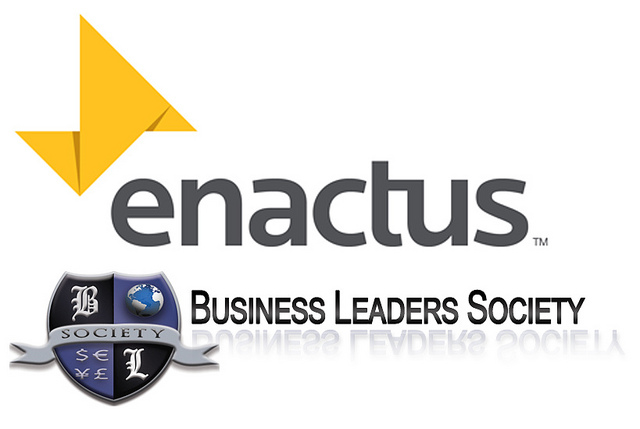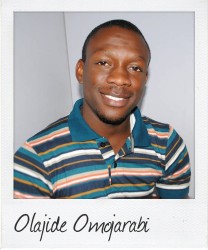“SIFE students: transform lives and change the world”
June 26th, 2013A student-run initiative uses simple business fundamentals to turn around the lives of the marginalised, writes Olajide Omojarabi, 25, a Correspondent from Zaria in Nigeria. The results empower lives, and allow students to be agents of change.
Fatima Umar is a widow and mother of nine. She makes a monthly income of N3, 500 (25 dollars) from sweeping shifts. To ease her of some of her responsibilities, Fatima’s two older daughters, age 17 and 19, had to marry – like their mother, without any skills or education.
This is part of Fatima’s story – part of the story that members of Students in Free Enterprise (SIFE) are transforming in our communities through the positive power of business. I became the team leader of SIFE two years ago and since then we have been developing projects, creating jobs and sustaining existing businesses. We do all this to increase the quality of life and standard of living of our beneficiaries. SIFE had a robust year in 2012/2013.
The team developed ten independent projects and nine of them were executed. The strategy was simple. First, we identified the people in need, and sampled a pre-test analysis on their conditions and their communities. Then, out of our would-be beneficiaries, we began working with those who truly were in need and whose living conditions needed a significant boost. Second, we applied an innovative and entrepreneurial approach by identifying the skills of the beneficiaries and which ones could solve a need in their various communities. Third, we applied business and economic concepts to teach basic market economics and sustainability strategies. Our beneficiaries included Vesico Vagina Fistula (V.V.F.) repaired patients, widows, rural men and women, and unemployed youths.
We worked with our beneficiaries for the period of nine months. Some of our partners and sponsors like The National Research Institute for Chemical Technology (NARICT), University Health Service (UHS), Hajiya Gambo Sawaba Hospital, Bethany Christian Academy (BCA), Ahmadu Bello University, and SAJ foods were available to provide us with some financial, technical and professional advice. Throughout the period of our project implementation, we engaged in activities ranging from hands-on skills training, to teaching new farming methods, sharing ways of local drinks production, and distributing raw materials for start-up to some of the beneficiaries. We also introduced them into the markets to help them develop their marketing strategies and hone their people skills.
A month later, we went back to collect testimonies from our beneficiaries. The results were astounding. Fatima Umar and some other women were making a weekly income of N17, 450 (112 dollars) from making and selling of Moringa Pepper—one of the skills the SIFE students taught them. As for the V.V.F. patients, stigmatized by families and divorced by their husbands, they gained back their lives by engaging in activities that don’t only integrate them back into the society, but also provide some form of satisfaction.
We measured our impacts through social, economic and environmental factors. Economically, we increased the daily income of men and women who initially had little or no source of income. Socially, Fatima, for instance has begun buying clothes for herself and her children. Her monthly house rent, too, is covered. Beginning in the next academic year, September, she intends to enroll some of her children in the Local Government Area schools. While our environmental factor is still yet to be considered, our plan is to introduce a project that would encourage the use of green energy like jatropha, solar, and biogas to some of our beneficiaries. They would be consumers and propagators of green energy through the fabrication of some of the implements and cultivation of some of the green energy plants.
On the 22nd of May, we had a SIFE on-campus competition. It was an opportunity for all nine projects as executed by nine different groups to tell the campus community how the SIFE students were empowering lives through business initiatives. It was thrilling, the dean of student affairs said, to have students as agents of change in the society.
In the 30 years since SIFE was founded in the United States for college students, the SIFE students have been called different names. Last year, the name was changed from SIFE to ENACTUS, an acronym for Entrepreneurs, Actors, Us. Be it agents of change, community service workers, social entrepreneurs, SIFE students or ENCATUS, we are students enabling progress. Cut across more than 1800 campuses globally, we are the only students’ organization not limited by distance, color, religion and education. We have a bond, and that is the sheer desire of changing the world. We have one mission, and that is to transform lives from poverty to affluence. While we may be called different names, we identify ourselves as Actors who are Enabling Progress through the positive power of business.
photo credit: Amy Nottmeier via photopin cc /
…………………………………………………………………………………………………………………
About me: I am an active, involved student. For two years I have been president of a student leadership organization called ENACTUS. Before university I was an on-air radio presenter for a live program that cuts across all areas of interest to Nigerian youths.
I look forward to being an expert in African studies, proffering solutions to Africa’s most raging problems through my intense interest in writing, community service and public speaking. Currently, I am a student of International Studies at the Ahmadu Bello University.
…………………………………………………………………………………………………………………
Opinions expressed in this article are those of the author and do not necessarily represent the views of the Commonwealth Youth Programme. Articles are published in a spirit of dialogue, respect and understanding. If you disagree, why not submit a response?
To learn more about becoming a Commonwealth Correspondent please visit: http://www.yourcommonwealth.org/submit-articles/commonwealthcorrespondents/
…………………………………………………………………………………………………………………





